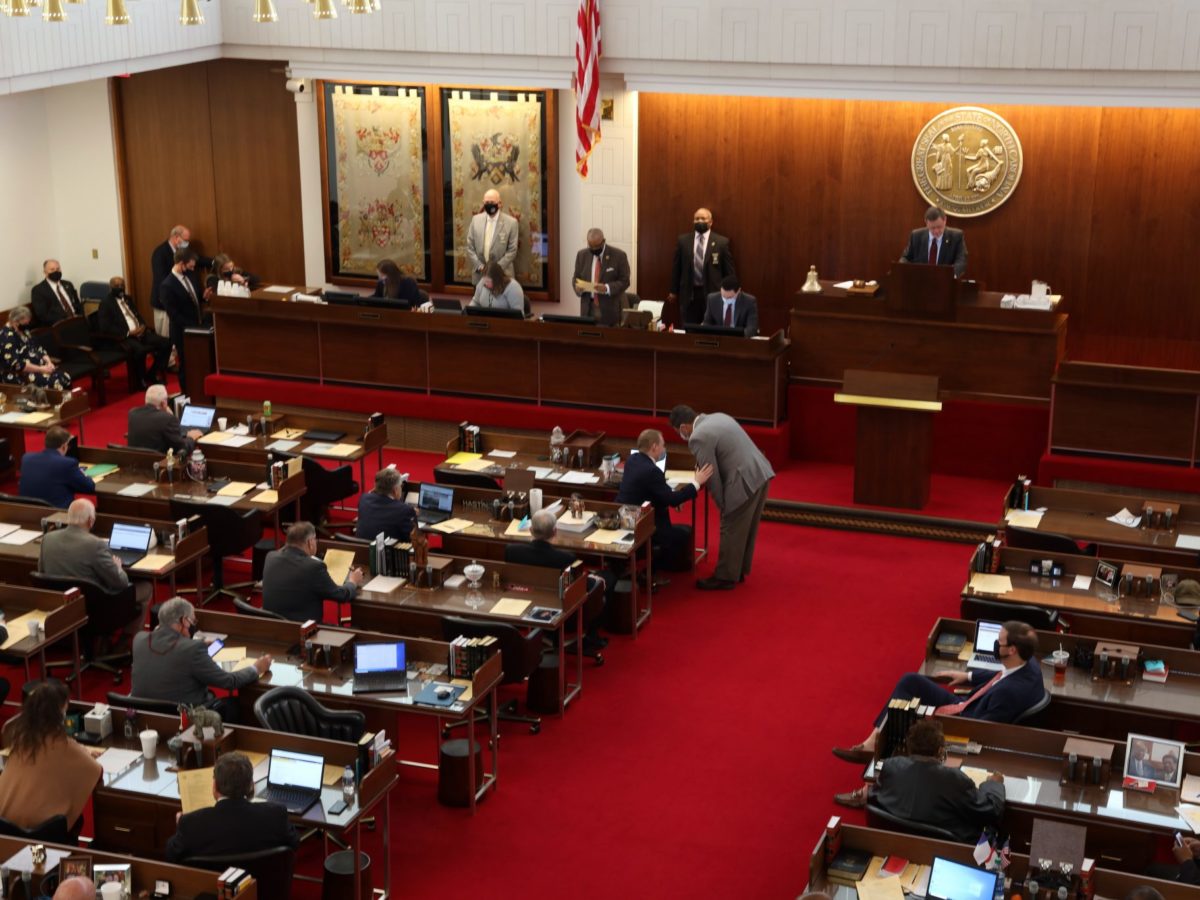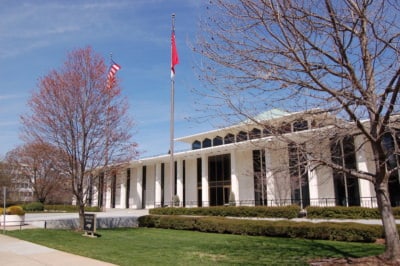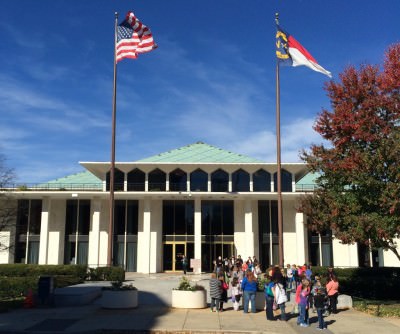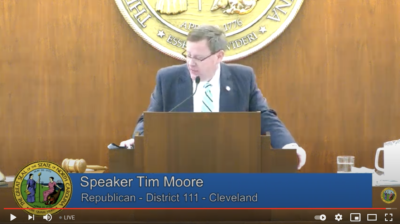
It was an interesting week for North Carolina education, with a lot of movement around mandatory summer learning programs as well as a loosening of COVID-19 restrictions on public school sports. Here is everything you may have missed.
Summer programs
A bill that would mandate districts around the state host summer programs directed toward at-risk students made its way through the House, ending in a unanimous vote by the full chamber. It moves now to the Senate. We’ve covered this extensively in a standalone article, so check that out here.
School sports
There was a lot of action both at the legislature and in the governor’s mansion surrounding school sports.
A bill that would change limits on how many people can watch student sports at outdoor venues passed two Senate committees and heads to the full Senate floor next. Gov. Roy Cooper had limited crowds at these events to 100 people because of COVID-19. But with metrics moving in the right direction, lawmakers are pushing to loosen those restrictions. The bill would allow attendance at 40% of an outdoor facility’s capacity.
“Social ties have been strained. Parents have reached their wits end and then some,” said bill sponsor Todd Johnson, R-Union, during a press conference this week. “It may seem like small potatoes, but going to watch a son or daughter, a niece or nephew, offers an escape…”
Separately, House Republicans filed a bill that would allow up to 50% capacity at both indoor and outdoor public school sports arenas.
Meanwhile, in a COVID-19 press conference this week, Cooper loosened restrictions around public school sports, among other things. Indoor public school sport facilities can now operate at 30% capacity with a max of 250 people. And outdoor public school sport facilities can now operate at 30% capacity — the 100-person limit no longer applies.
Johnson has said that he would prefer that Cooper loosen restrictions himself, but the changes made by Cooper fall short of Johnson’s bill, much less that of House Republicans. It remains to be seen if the sponsors of those two pieces of legislation will still feel compelled to push forward.
Sign up for the EdDaily to start each weekday with the top education news.
In-person learning
Update: Friday, Feb.26, 2021 — Cooper vetoed the bill discussed in this section shortly after publication.
As of publication of this article, the governor hasn’t signed or vetoed a bill passed last week that would require schools to bring students back to school in-person. Cooper has until Feb. 28 to do so. In addition to signing or vetoing it, he can also let the legislation pass into law without his signature.
To recap:
The legislation would make schools open for exceptional needs students under plan A, and under either plan A or plan B for all other students. Plan A is full-time in-person education with minimal social distancing. Plan B is typically a hybrid of in-person and remote learning, with six feet of social distancing.
No district would be able to solely offer remote learning to students, but families who want their students to remain fully virtual would still have that option. The bill doesn’t apply to charter schools, only traditional public schools.
When asked about the bill during a press conference this week, Cooper did not indicate what he will do with the legislation. He has said that he doesn’t like the portion of the bill that allows students in higher grade level to return full-time, in-person, without social distancing. He has also mentioned wanting to work with the legislature to find a version of the bill that would be more palatable to him.
Perhaps that more-palatable bill might look like this Senate bill and this House bill filed by Democrats. They are companion bills that don’t go as far as the Republican bill that already passed the legislature. Notably, they only have students in middle and high school coming back under plan B, which generally means students doing a hybrid schedule that combines some in-person learning with some remote learning, and includes social distancing requirements.
Meanwhile, Republicans such as Sen. Deanna Ballard, R-Watauga, put out press releases this week calling on the governor to make a decision on their bill.
“Reopening schools is a national issue that impacts millions of families, especially working mothers. People are looking to their government for leadership, yet all they’re getting from the Governor is inaction,” Ballard’s press release stated. “Gov. Cooper needs to either sign or veto the bill; continuing to procrastinate does nothing but hold our kids back.”
Ballard is a co-chair of the Senate Education Committee. For more on the in-person learning bill, go to last week’s roundup.
Standardized testing
In other news, the U.S. Department of Education announced this week that standardized testing required by the federal government must go on. The tests can, however, be delayed or held online, and states can ask for a relaxation of accountability measures. But those hoping that high-stakes End-of-Course (EOC) and End-Of-Grade (EOG) tests would be canceled will be disappointed.
The State Board of Education already voted in January to submit to the federal government requests for two waivers — one related to the percent of students that have to take tests such as the EOC and EOG, and one related to the accountability impacts of those tests.
What the State Board of Education didn’t do is ask to skip the tests altogether, which is what happened last spring due to COVID-19. One of the reasons they didn’t ask for a waiver from testing altogether is that the U.S. Department of Education under former President Donald Trump said it wouldn’t be granted. There was some hope that under President Joe Biden that would change, but the news this week indicates it will not.
The State Board of Education meets next week for its monthly meeting.
Odds and ends
Joint education appropriations committee meetings were held all week in preparation for the budget process. At one of those meetings, lawmakers received a helpful primer on the process the state goes through in creating its two-year budget. It’s good information for anybody to have.
You can see that primer here.
On Wednesday, General Assembly staff presented information on base appropriation levels from the N.C. Community College System’s 2020-21 academic year to the committee. While community college enrollment typically increases during recessions, North Carolina has experienced a decrease in enrollment. But staff said this was consistent with national trends due to COVID-19. Staff also presented data showing that North Carolina’s community college in-state tuition rates are lower than all other Southern states, at $2,440 per year.
On Thursday, the joint committee heard from community college system President Thomas Stith. He relayed his legislative priorities, including a 5% increase in faculty and staff salaries, nearly $61 million in budget stabilization, and funds to strengthen the system’s cybersecurity infrastructure.
And two bills that are the result of recommendations from the joint legislative education oversight committee passed the House and go now to the Senate.
One would require the State Board of Education to report to the General Assembly on participation in computer science courses annually.
And another would require information from districts on digital learning devices in schools, the availability of such devices to students outside of school, and student access to the internet outside of school. All this information would be available on a digital learning dashboard established by the State Board of Education.
Recommended reading




